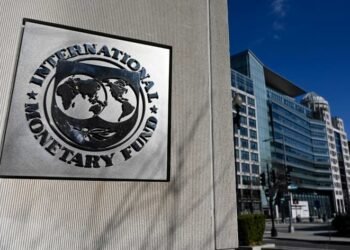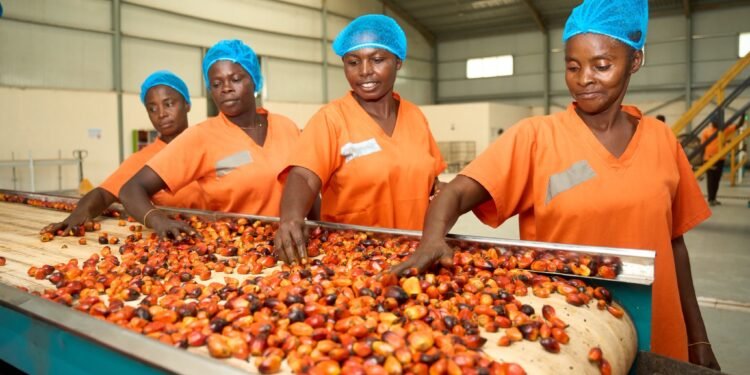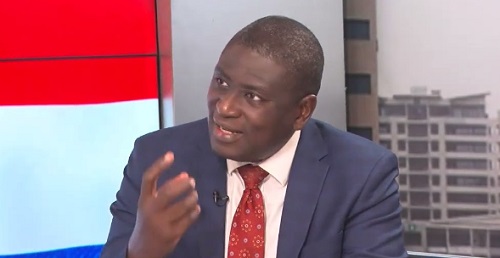International rating agency, Fitch, has made slight corrections to the rating action of Ghana’ senior unsecured debt that it published on January 14, 2022.
The recent document however, maintained all the issues raised in the previous rating which downgraded Ghana’s Long-Term Foreign-Currency Issuer Default Rating (IDR) to ‘B-‘ from ‘B’ and the agency added that the rating is “not affirmed”.
“This is a correction of the rating action commentary published on 14 January 2022. It corrects the rating action on Ghana’s senior unsecured debt, which Fitch has downgraded, not affirmed. Fitch Ratings has downgraded Ghana’s Long-Term Foreign-Currency Issuer Default Rating (IDR) to ‘B-‘ from ‘B’. The Outlook is Negative”.
Fitch
Key Rating Drivers
The downgrade of Ghana’s IDRs and Negative Outlook reflect the sovereign’s loss of access to international capital markets in 2H21, following a pandemic-related surge in government debt. This comes in the context of uncertainty about the government’s ability to stabilize debt and against a backdrop of tightening global financing conditions.
“In our view, Ghana’s ability to deliver on planned fiscal consolidation efforts could be hindered by the heavier reliance on domestic debt issuance with higher interest costs, in the context of an already exceptionally high interest expenditure to revenue ratio”.
Fitch
Ghana’s effective loss of market access to international bond markets increases risks to its ability to meet medium-term financing needs. Fitch believes Ghana has sufficient liquidity and other available external financing options to cover near-term debt servicing without Eurobond issuance.
However, there is a risk that non-resident investors in the local bond market could sell their holdings, particularly if confidence in the government’s fiscal consolidation strategy further weakens, placing downward pressure on its reserves, it iterated.
Fitch assumes that Ghana will be unable to issue on international capital markets in 2022 and prospects for doing so in 2023 are uncertain. Ghana’s international reserve position has become highly reliant on annual Eurobond issuance. Moreover, as of July 2021, non-resident investors held just below 20% (USD5.8 billion) of Ghana’s outstanding domestic government debt. While the maturity of these holdings is long-term, an outflow would put additional downward pressure on Ghana’s reserves.
“We forecast that Ghana will face approximately USD2.7 billion (3.3% of GDP) in sovereign external interest service and amortization payments in 2022. We believe that the government can meet its external debt servicing without market access given its reserves, which we estimate at USD7.9 billion at end-2021 (3.2 months of current external payments)”.
Fitch
Reserves were bolstered by USD3 billion in Eurobonds in 2Q21, which helped the government to meet its approximately USD3.5 billion (4.7% of GDP) in sovereign external debt servicing costs last year, and by the USD1 billion IMF SDR allocations.
Deficit to narrow
Fitch forecasts the general government fiscal cash deficit to narrow to 9.1% of GDP in 2022 from 15.1% in 2020 and 12.5% in 2021 (including 3% of GDP in domestic arrears clearance and payments related to the state-owned energy sector). The 2022 deficit would still be more than twice the 2022 ‘B’ median of 4.6% and risk to public finances remain high. The government envisages a deficit (including financial and energy sector support) of 7.4% in 2022 and 5.5% in 2023, with a fall to below the legal deficit ceiling of 5% in 2024.
“The government’s fiscal consolidation plans are focused on revenue measures adopted in the 2022 budget, including a new 1.75% e-levy on certain digital transactions and changes to the calculation of certain taxes and import duties. The medium-term fiscal framework envisages that these new revenue measures, together with fading pandemic-related expenditure, will drive an increase in government revenue to 20.0% of GDP in 2022 from an estimated 15.4% in 2021”.
Fitch
Fitch believes that Ghana will achieve moderate medium-term fiscal consolidation, but that the government’s forecasts are overly optimistic.
“We forecast the fiscal deficit will narrow by significantly less, to 9.5% of GDP in 2022 and approximately 8.0% in 2023, as government revenue experiences a smaller increase. Ghana has struggled with earlier efforts to raise revenue/GDP and public finances were deteriorating even before the pandemic, albeit partly related to the clean-up in the financial and energy sector”.
Fitch
On public debt, Fitch maintained that general government debt reached an estimated 83% of GDP at end-2021, including approximately 2% of GDP in debt held through the Energy Sector Levy Act special purpose vehicle.
“We forecast government debt to remain on an upward path through 2025, but expect debt to grow at a slower pace as the primary deficit narrows in 2022 and 2023. Debt affordability metrics will remain weak. Ghana’s debt constitutes 539% of government revenue, compared with the ‘B’ median of 325%. Interest payments were 44.6% of revenue in 2020 and the ratio is likely to continue rising through 2023, assuming a rising share of domestic debt in total debt in the absence of external financing options”.
Fitch
Given the slow pace of private sector credit growth and the weak asset quality environment, Fitch expects that the domestic lenders will be able to meet the government’s increased reliance on domestic debt issuance.
READ ALSO: Ministry of Education Reverses Academic Calendar To Trimester System























